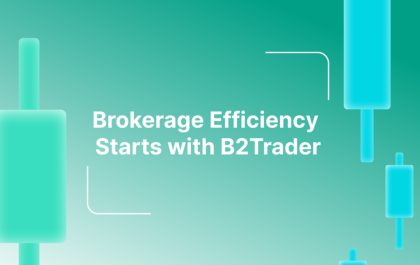There is no room for settlement to achieve the next level of industrial resilience, efficiency, and sustainability. Modern technology is developing at an alarming rate, with new developments occurring daily. In this industry, the transition has sparked innovation, particularly in digitization and the creation of NextGen automation. This nextgen automation aids the development of a connected world.
Energy management and operational automation are two key focuses of this transformation. Through data-driven operations, predictive system management, and other capabilities, digital transformation makes it possible for automation to be more focused and effective. Additionally, it establishes the foundation for efficient, optimized energy use through improved real-time visibility and knowledge of energy data.
Learn more by reading the rest of the article to find out how the industry is doing now, the changes and transformations that are taking place, and what manufacturers can do to stay ahead of the curve.
Table of Contents
What is Nextgen Automation?
With a full suite of services, including print solutions, networking environment management, Microsoft license, and various digital marketing tools, Nextgen automation offers its clients innovative office technology solutions. Additionally, thanks to next-gen automation, QA automation engineers from India get hired for full-time positions, direct employment contacts abroad, and domestic software testing jobs. Moreover, they can mentor other QA engineers who want to experience rapid advancement in the IT industry.
Future of Industries

Sustainability, digitalization, decentralization, and business models will all play a significant role in the future of Industry 4.0 (the fourth industrial revolution). The requirement to increase resilience and lower customer financial risk underlie these four pillars. Look at each of them individually.
1. Sustainability is the focus on clean and effective energy utilization strategies. It emphasizes how crucial it is to reuse, repurpose, and recycle items. Examples of this include energy efficiency, decarbonization, and a circular economy.
2. Using technology to transfer data and processes is simply one aspect of digitalization. Digital technologies are used to redefine company models, offer new chances for revenue, and concurrently break down fragmented information silos, which results in the shift known as digitalization.
3. Decentralization simplifies information and process flow by facilitating access to information and streamlining monitoring. Some examples of decentralization include edge computing, blockchain technology, and operations autonomy.
4. Better ways to get results are described in business models. These investigate new capabilities and modify the way things are done now. Data-as-a-service, SaaS, and shared company are a few examples of these.
Market Drivers for the Future Nextgen Automation
There are several other variables driving the market and the demand for nextgen automation in addition to customers’ shifting demands and expectations. A few of these include:
1. Expanding applications for wireless technology to boost market expansion: The Internet of Things (IoT) is driving the market, especially given the necessity for various technologies to communicate and work together. Industrial equipment, home furnishings, and autonomous vehicles are a few examples. They will accelerate market growth as these technologies become more widely available
2. High expenses to constrain the market: Infrastructure and development ought to be expensive to maintain competitiveness in the market.
3. Lack of communication norms is a market challenge: The conflict between the platforms’ flexibility and their high initial costs, their compatibility with older devices, and their inability to interact with current technologies could all harm the market’s expansion.
Transformation is For Every Organization
The notion that transformation is expensive and only acceptable for large organizations has now been proven false by the democratization of automation, intelligence, and connectivity. The ‘next-gen’ services differ from the more readily available set of future benefits because of this integration of automation and innovation in a spirit of purposefulness. This accelerates the natural business cycles, moderation with longer-term priorities, and tenacity. Nextgen automation requires the right expertise, tools, and technology to solve the right problems at the right time.
Further Reading:
TheITbase
Related posts
Hot Topics
DVD Screensaver
A DVD screensaver is a program that enacts when a blu-ray player is inactive, showing visual substance like movements, slideshows,…
B2Broker Spends $5 Million on B2Trader — The Revolutionary Brokerage Platform
B2Trader: The cryptocurrency market is experiencing an exhilarating period of expansion as Bitcoin reaches record-breaking levels and the overall crypto…



